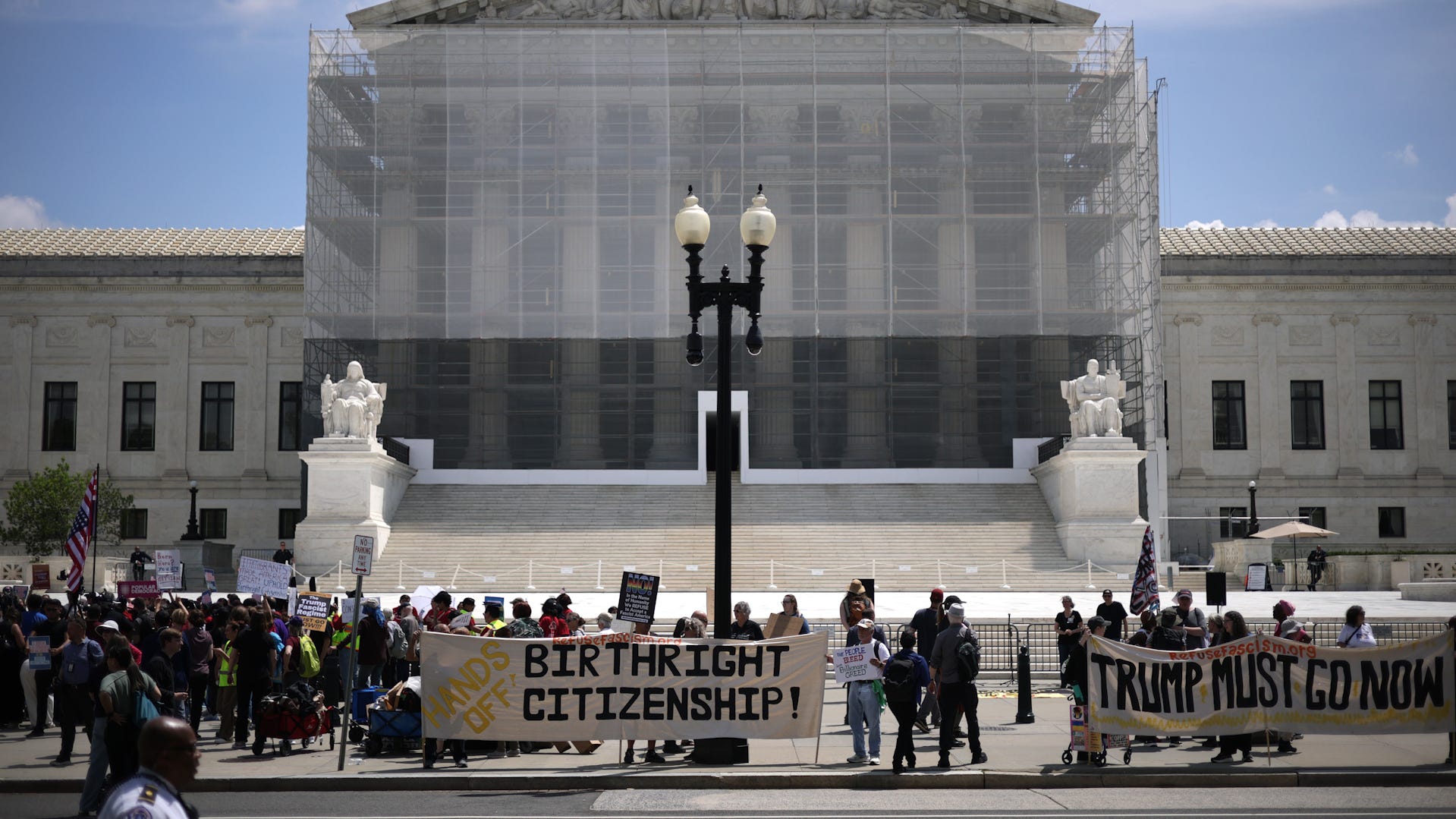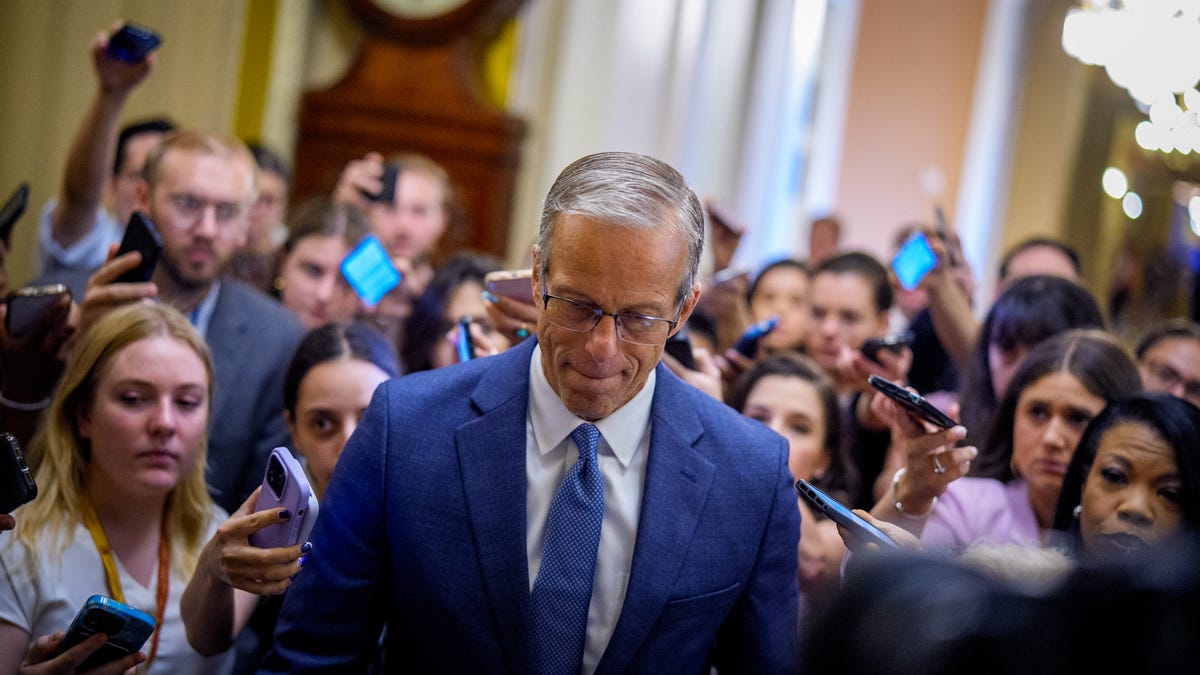In a single line, Justice Amy Coney Barrett simultaneously dismissed the opinion of Justice Ketanji Brown Jackson while also levying a legitimate criticism against her dissent.

Supreme Court lifts blocks against Trump birthright citizenship order
A 6-3 Supreme Court decision lifts blocks against President Trump’s order to deny citizenship to babies of undocumented immigrants and visa holders.
- The Supreme Court ended the use of universal injunctions, which allowed federal judges to block executive orders nationwide.
- Justice Amy Coney Barrett’s majority opinion directly criticized Justice Ketanji Brown Jackson’s dissent, revealing tensions within the court.
- Barrett and Jackson’s differing opinions highlight their contrasting judicial philosophies, particularly regarding the role of judges in checking executive power.
- The justices disagree on whether universal injunctions are a constitutional form of relief against potentially unconstitutional executive actions.
On June 27, the Supreme Court put an end to universal injunctions, orders that allowed for federal judges to block executive orders from going into effect against anyone in the country.
Beyond the merits of Justice Amy Coney Barrett’s majority opinion, signed on to by all six conservative justices, the tone of her opinion was uniquely hostile against the court’s liberal wing, namely Justice Ketanji Brown Jackson.
Barrett orchestrated a complete smackdown of Jackson’s dissent. The overtly hostile nature of Barrett’s attack on Jackson reveals heightened tensions within the Supreme Court.
Barrett’s hostilities toward Jackson reveal tensions in Supreme Court
In her majority opinion, Barrett repeatedly calls out Jackson by name, a practice often avoided by the writers of majority opinions, who opt to criticize “the dissent” as a general category instead.
Justices accosting each other by name is rare – even in Justice Neil Gorsuch’s own spat with Jackson just a few days prior, he was not this hostile.
Even as the dissents have tended to be on the dramatic side in recent years, rarely have they become outright hostile toward one another. However, Barrett in particular seems to be fed up with Jackson’s liberal jurisprudence.
“We will not dwell on JUSTICE JACKSON’s argument, which is at odds with more than two centuries’ worth of precedent, not to mention the Constitution itself,” Barrett wrote for the majority. “We observe only this: JUSTICE JACKSON decries an imperial Executive while embracing an imperial Judiciary.”
In a single line, Barrett simultaneously dismisses the opinion of Jackson while also levying a legitimate criticism against her dissent.
Jackson advocates for universal injunctions as a check against presidential overreach, but trading in one branch’s overreach of their authority for another’s does not produce a balanced system of government.
In the judicial equivalent of the People’s Elbow, Barrett uses Jackson’s own words against her to further advance that point. “JUSTICE JACKSON would do well to heed her own admonition: ‘[E]veryone, from the President on down, is bound by law.’ That goes for judges too.”
Barrett’s critiques of Jackson reveal a growing tension between the court’s two newest and youngest judges, who in all likelihood will be serving alongside each other for the next couple of decades. Just three years into their tenure together, Barrett is already fed up with Jackson’s misunderstanding of the constitutional role of judges.
Barrett and Jackson disagree over the role of judges
This argument reveals a stark difference in the judicial philosophies of Barrett and Jackson.
Their chief disagreement on the issue of nationwide injunctions is whether they are the constitutionally proper form of relief against executive actions suspected of being unconstitutional.
Barrett contends that “the universal injunction was conspicuously nonexistent for most of the Nation’s history.”
“Universal injunctions were not a feature of federal-court litigation until sometime in the 20th century,” she wrote in her majority opinion. “Yet such injunctions remained rare until the turn of the 21st century, when their use gradually accelerated.”
The primary dissent, authored by Justice Sonya Sotomayor and signed on to by all three liberal justices, charges that “by stripping all federal courts, including itself, of that power, the Court kneecaps the Judiciary’s authority to stop the Executive from enforcing even the most unconstitutional policies.”
Jackson filed a separate dissenting opinion, in addition to her joining of Sotomayor’s, which goes further.
“In a constitutional Republic such as ours, a federal court has the power to order the Executive to follow the law ‒ and it must,” Jackson wrote in her dissent. “Made up of ‘free, impartial, and independent’ judges and justices, the Judiciary checks the political branches of Government by explaining what the law is and ‘securing obedience’ with it.”
Both dissents insist this decision gives the executive branch unbound authority to act unconstitutionally without any check against it. But it’s not as if universal injunctions are the only option for relief. As the conservatives in the majority highlight, traditional class action lawsuits offer relief in a similar way to these injunctions, but with a higher procedural burden than sweeping judicial orders.
The issue with injunctions is that they are a blunt instrument, often used in cases that require a scalpel. The conservatives on the court understand that these orders exceed the constitutional role of judges and are willing to rein them in because of that. The liberal justices are comfortable with combating executive overreach with judicial overreach.
Dace Potas is an opinion columnist for USA TODAY and a graduate of DePaul University with a degree in political science.








